Ancient Greece is recognized worldwide as the cradle of democracy and philosophy. This article explores the origins and development of these two fundamental pillars of Western civilization, delving into the historical and cultural contributions of Ancient Greece. Understanding these concepts not only enriches our historical knowledge, but also illuminates the roots of many of the principles that guide modern societies.
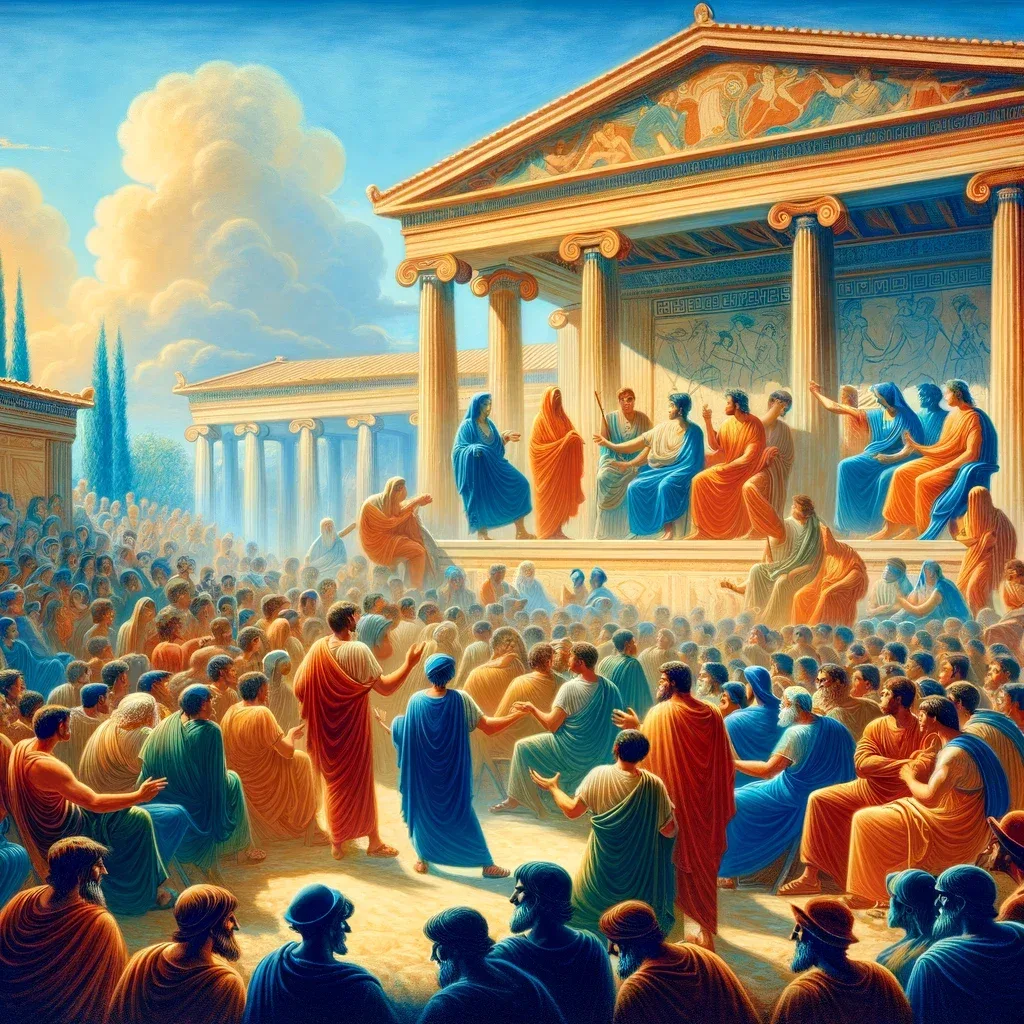
Origins of Democracy in Ancient Greece
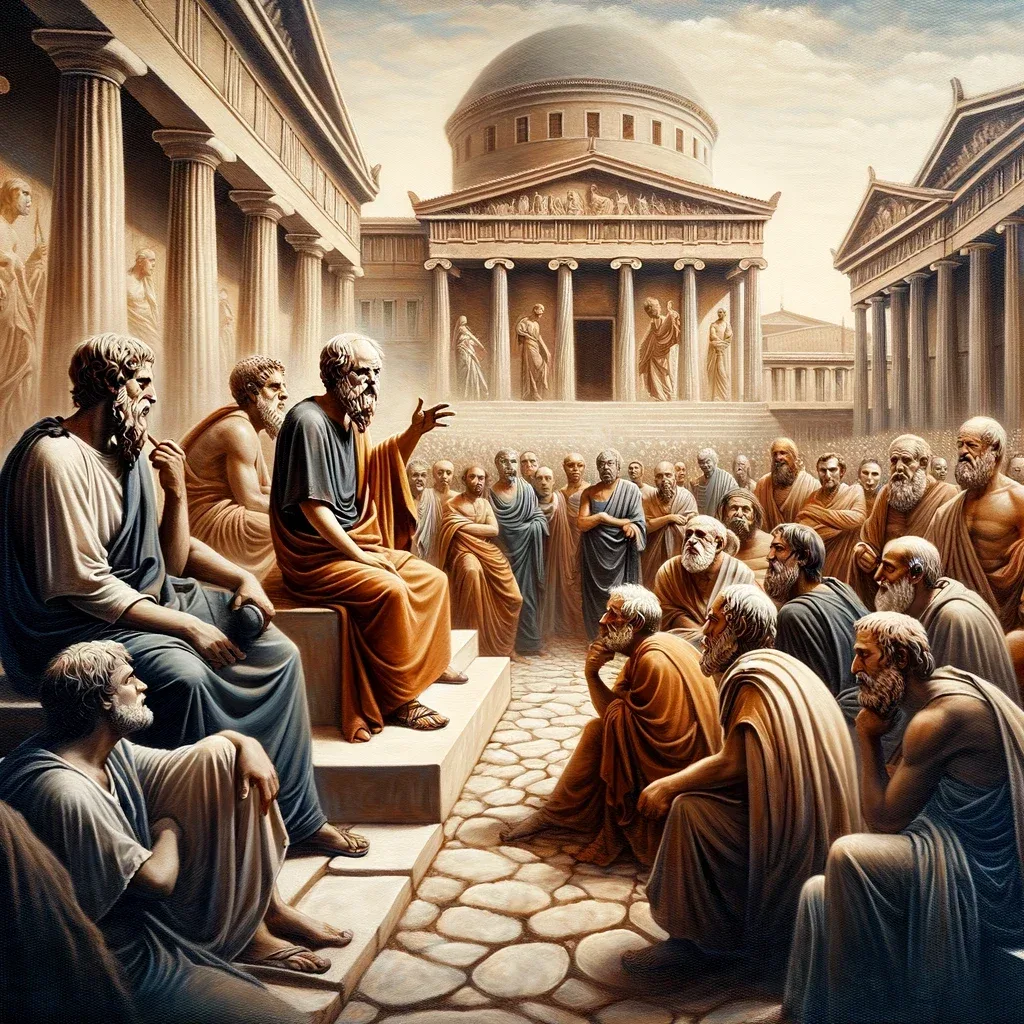
Athenian Democracy
Democracy, as we know it today, had its roots in the city-state of Athens around the XNUMXth century BC Under the leadership of figures such as Cleisthenes and Pericles, Athens developed a system of government in which power resided in the hands of the people, a novelty radical for the time.
Characteristics of Democratic Government
The Athenian democratic system was characterized by institutions such as the Ecclesia (citizens' assembly), where important decisions were made by vote. This model of direct participation was complemented by a system of lotteries for public positions, ensuring broader representation.
Impact and Legacy
Athenian democracy, despite its limitations (excluding women, slaves and metics), laid the foundation for modern democratic systems. His legacy persists as an ideal of participatory and representative government.
The Birth of Philosophy in Ancient Greece
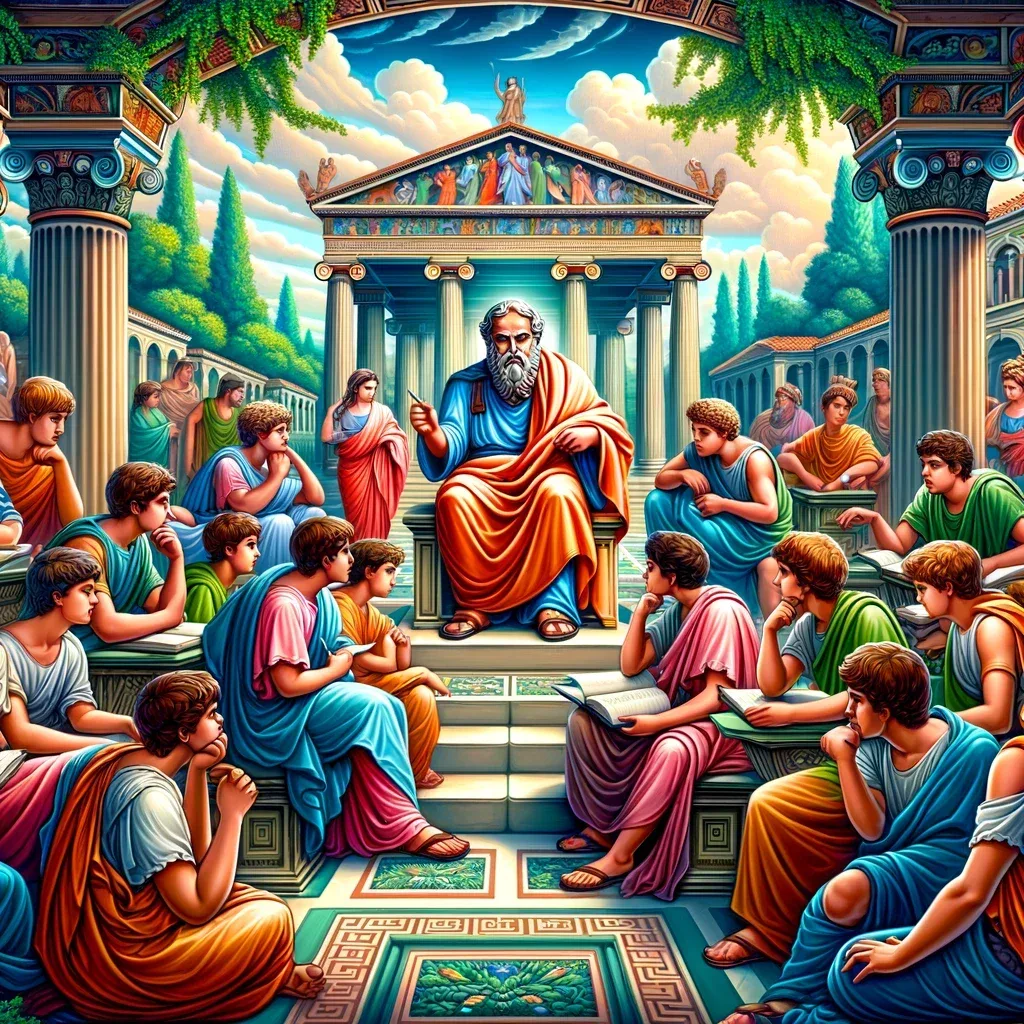
Pioneers of Philosophical Thought
Ancient Greece was home to prominent thinkers such as Socrates, Plato and Aristotle. They laid the foundations of philosophy, exploring topics such as ethics, politics, metaphysics, and logic.
Philosophical Schools and Their Teachings
In addition to the great philosophers, several schools of thought emerged, such as Stoicism and Epicureanism, which offered different perspectives on life and the universe.
Influence and Contemporary Relevance
The philosophical ideas of Ancient Greece continue to influence contemporary thought, providing insights into universal questions of human existence and serving as a point of reference for modern debates.
Democracy and Philosophy in Greek Society
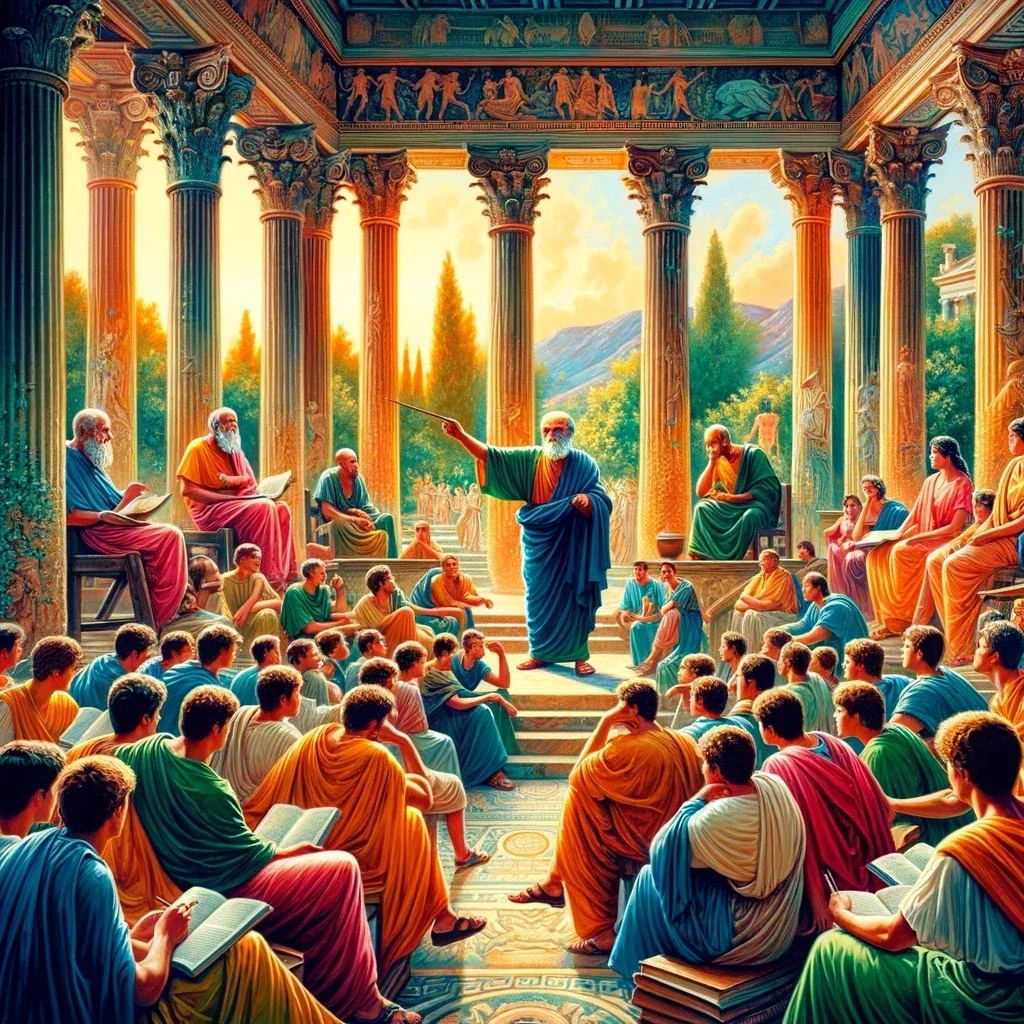
Integration between Democracy and Philosophy
In Ancient Greece, democracy and philosophy were closely linked. Philosophical thinking influenced the way citizens viewed their role in society and the functioning of government.
Education and Citizen Participation
Education in Ancient Greece, especially in Athens, emphasized rhetoric and debate, essential tools for participation in democracy. Philosophy was seen as a means to form well-informed and critical citizens.
Challenges and Criticism
Athenian democracy faced criticism from philosophers such as Plato, who questioned the people's ability to govern effectively. These criticisms still resonate in modern discussions about the nature and challenges of democracy.
Ancient Greece in the World Context
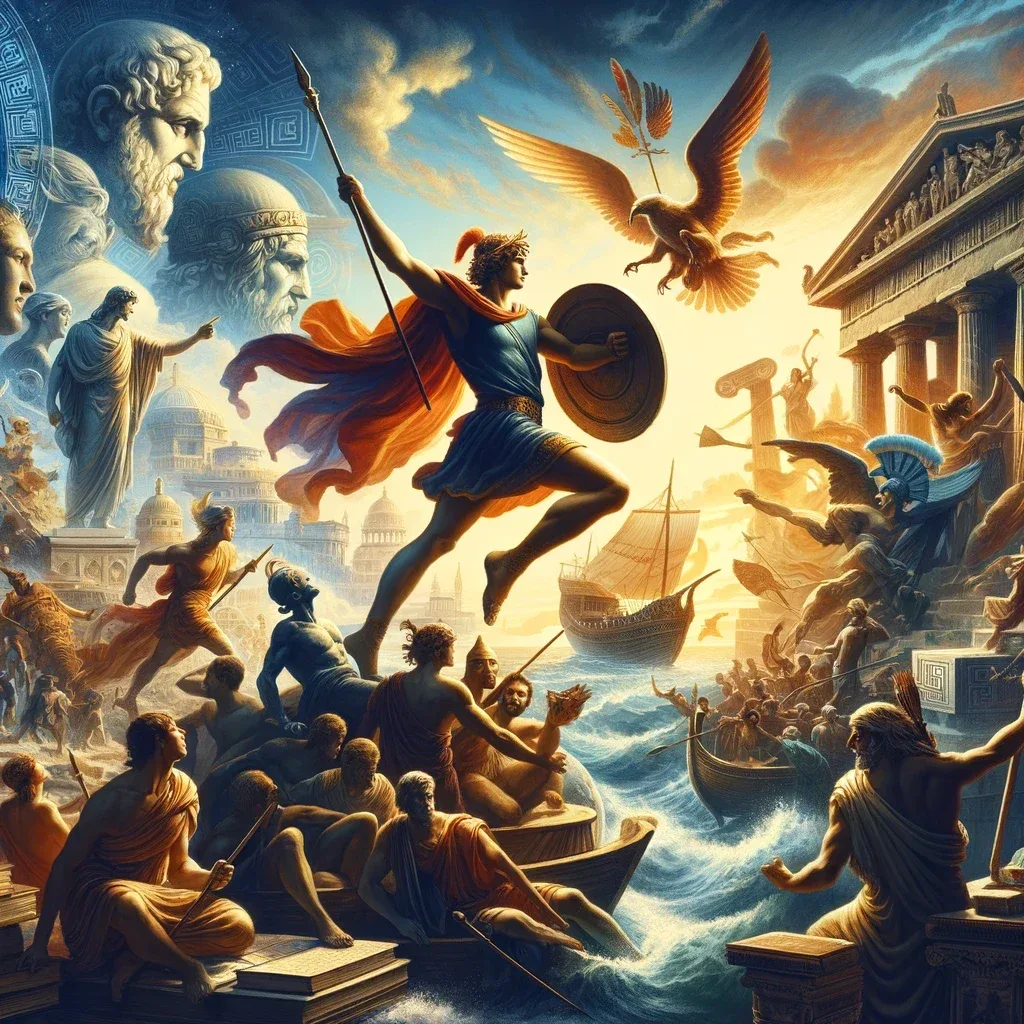
Interactions with Other Cultures
Ancient Greece was not a cultural isolate. Interactions with other civilizations, such as the Persians and Egyptians, enriched their political and intellectual development.
Achievements and Expansion
Under Alexander the Great, Greek ideas of democracy and philosophy spread across the ancient world, influencing other cultures and laying the foundation for the Hellenistic period.
Permanent Legacy
The legacy of Ancient Greece is a testament to its lasting influence. Your contributions
For democracy, philosophy, art and science continue to be fundamental to understanding Western history and culture.
Conclusion
Ancient Greece is fundamental to understanding the roots of democracy and philosophy. His legacy is not just a chapter in history, but an ongoing source of inspiration and reflection for modern societies. The study of Ancient Greece allows us to better appreciate the value of civic participation and the ongoing search for truth and meaning in human life.
FAQ: Democracy and Philosophy in Ancient Greece
Introduction to the FAQ
In this FAQ, we explore some of the most frequently asked questions about democracy and philosophy in Ancient Greece, offering an in-depth look at how these concepts developed and influenced the modern world.
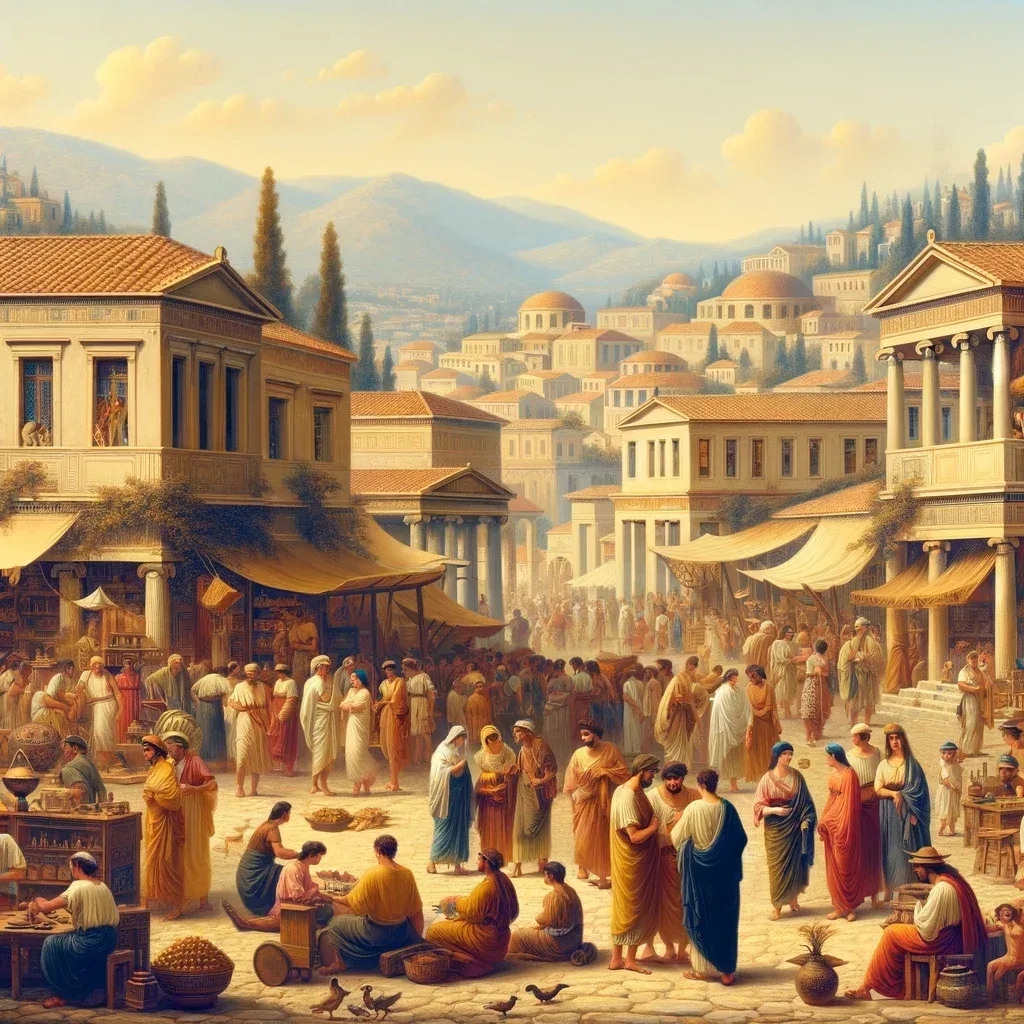
Frequently Asked Questions about Democracy and Philosophy in Ancient Greece
1. When and where did democracy begin in Ancient Greece?
2. Who were the main philosophers of Ancient Greece?
3. How was philosophy linked to democracy in Athens?
4. What were the limitations of Athenian democracy?
5. How did Greek ideas spread throughout the ancient world?
6. What were the main philosophical schools in Ancient Greece?
7. What was Plato's criticism of Athenian democracy?
8. How did education influence democracy in Athens?
9. What is the legacy of Ancient Greece to the modern world?
10. How did Ancient Greece interact with other civilizations?
This FAQ offers a comprehensive overview of democracy and philosophy in Ancient Greece, covering everything from its origins to its lasting impact on the modern world.





